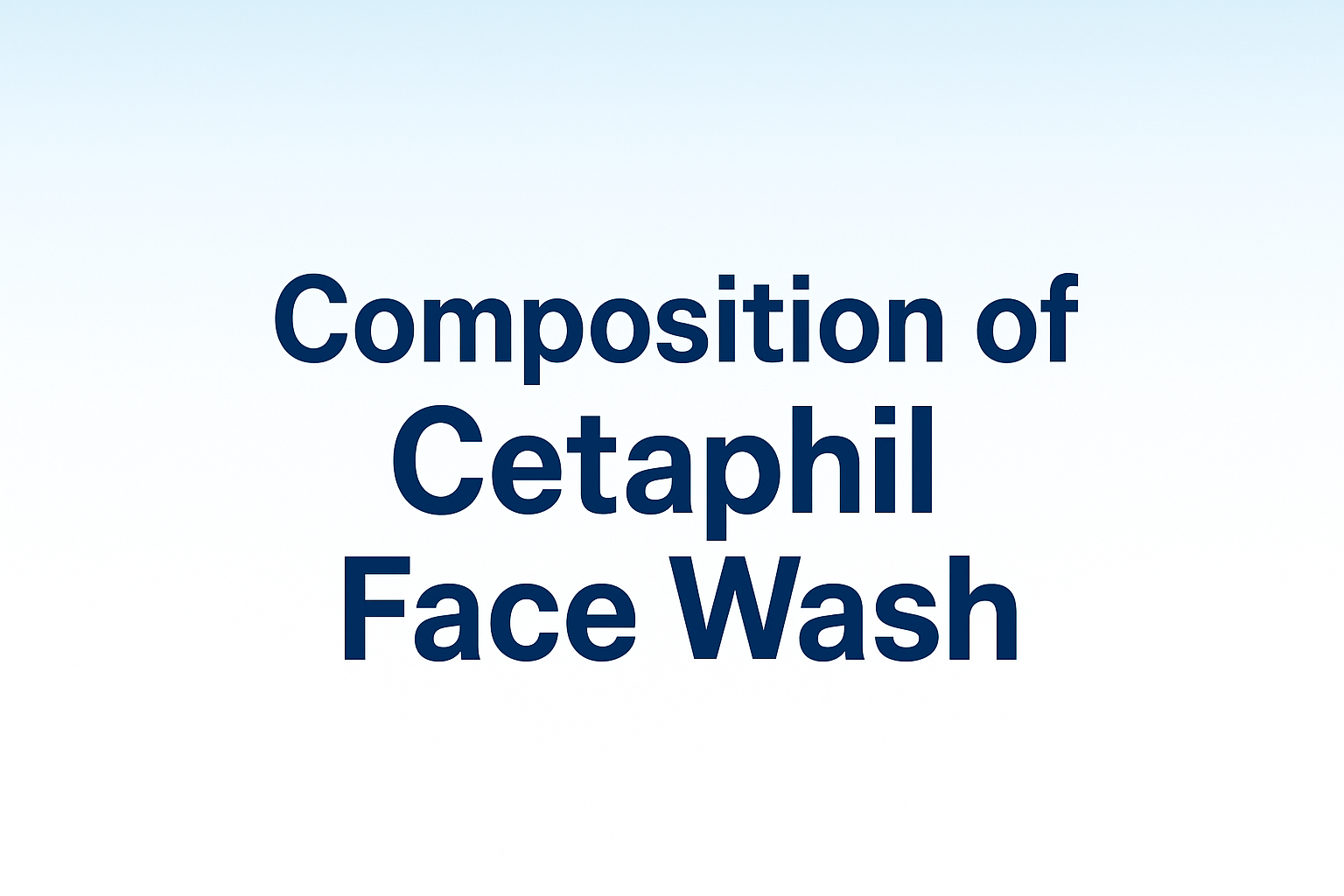Caring for a new tattoo is crucial for both its appearance and the healing process. Using the right products can ensure that your tattoo heals properly and retains its vibrant colors. One common question many new tattoo owners have is whether they can use Cetaphil face wash to clean their tattoos.
In this article, we’ll explore the suitability of Cetaphil face wash for tattoo care, considering its formulation, benefits, and how it compares with other tattoo aftercare products.
Understanding Tattoo Aftercare
Importance of Proper Tattoo Cleaning
During the healing phase of a new tattoo, it is vital to clean the area effectively to avoid infections and ensure optimal healing. While Cetaphil Face Wash is known for being a gentle cleanser, it’s important to consider its suitability for tattoo care.
Although gentle, the presence of fragrances in some Cetaphil formulations might irritate the sensitive skin around a new tattoo, potentially causing redness and itching. Furthermore, some face washes may strip away natural oils and moisture, hindering the healing process by causing dryness, which can lead to scabbing, cracking, or scarring.
Proper tattoo care emphasizes the need to keep the tattooed area moist and free from irritation to preserve both the quality of the ink and the health of the skin.
Therefore, choosing a cleanser that is specifically formulated for tattoo aftercare, preferably one recommended by tattoo artists, is crucial for maintaining the aesthetics and health of your new tattoo.
Common Recommendations for Tattoo Care
When managing the care of a new tattoo, selecting soaps that are gentle and devoid of fragrances is crucial. Tattoo care experts often suggest using mild cleansers to avoid skin irritation and prevent interference with the healing process.
Although Cetaphil Face Wash is recognized for its mildness and absence of fragrances, it is important to consider that it is not specifically tailored for tattoo aftercare. Therefore, while it can be appropriate for cleaning a tattoo due to its gentle properties, it is essential to ensure that the specific variant used does not contain ingredients that could dry out or irritate the skin, thus impeding recovery.
Following the recommendations of tattoo artists for specialized tattoo care products will further support the healing process.
What is Cetaphil Face Wash?
Composition of Cetaphil Face Wash
Cetaphil face wash is formulated to cleanse gently without removing essential natural oils from the skin, which is vital for maintaining overall skin health. Its hypoallergenic and gentle nature makes it particularly favorable for sensitive skin types.
Considering these characteristics, one might assume that Cetaphil face wash would be suitable for cleaning a new tattoo, as it effectively removes impurities while being mild enough not to aggressively strip the skin.
During the critical healing phase of a tattoo, preserving the skin’s natural moisture and oil balance is key to ensuring proper care and recovery of the tattooed area.
However, it is important to choose a product variant free from fragrances and harsh ingredients that could potentially irritate the sensitive, newly tattooed skin.

Why Choose Cetaphil?
In the realm of tattoo aftercare, the primary aim is to protect the tattooed area from irritation while fostering the best conditions for healing. Cetaphil face wash stands out as a suitable option due to its gentle characteristics.
Engineered to be non-comedogenic and free of fragrances, Cetaphil is designed to prevent any unnecessary substances from coming into contact with sensitive skin.
This ensures a gentle cleaning action on a new tattoo, thus reducing the chance of hindering the healing process.
Can You Use Cetaphil Face Wash on a Tattoo?
Cetaphil face wash, while a gentle cleanser, is generally not recommended for cleaning new or healing tattoos. Here’s why:
Fragrance
When considering whether to use Cetaphil face wash for a new tattoo, it’s crucial to understand how certain ingredients might affect the healing process. Typically, a tattoo is treated as a wound, and the skin around it can become sensitive and inflamed.
Cetaphil products are generally mild, but the presence of fragrances in some formulations could potentially irritate this inflamed tissue, causing symptoms like redness and itching.
Additionally, even mild chemicals and fragrances that don’t usually hinder the healing of typical skin might prolong the healing time of tattooed skin, which is far more delicate.
Therefore, selecting a fragrance-free version, especially designed for sensitive skin, would be a safer choice to avoid any adverse effects that could irritate your healing tattoo.
Potential for Drying
Using Cetaphil Face Wash to clean a new tattoo can be a viable option, especially considering its reputation for gentle formulations. However, it’s crucial to assess the potential for drying.
Some face washes are designed to strip away natural oils and moisture, which could make the skin harder to heal properly and potentially lead to scabbing, cracking, or scarring.
For optimal tattoo aftercare, it’s essential to keep the area moist to promote healing and prevent scabbing. Choosing a cleanser that respects the compromised skin surface of a new tattoo by keeping it hydrated is critical.
Not Specifically Formulated for Tattoos
When it comes to tattoo aftercare, selecting a suitable cleanser that is gentle on your skin while also capable of keeping the area clean and moist as it heals is crucial. Cetaphil Face Wash, though popular for being mild, fragrance-free, and hypoallergenic, is not specifically formulated for tattoo aftercare.
This means it lacks certain properties that are essential for the healing process, such as the ability to promote healing without stripping away essential moisture.
Specialized cleansers for new tattoos, often recommended by tattoo artists, are designed to be unscented and avoid irritation, which makes them more suitable than typical liquid soap or face cleansers.
Always follow your tattoo artist’s aftercare instructions, and consider their recommendation for a tattoo wash that truly supports tattoo aftercare.
Recommended Tattoo Cleaning Practices
During the healing phase (typically 2-4 weeks), follow these steps to clean your tattoo:
- Wash your hands thoroughly with antibacterial soap and warm water before touching your tattoo. This helps to prevent infection, which is a major risk during the healing process.
- Apply a fragrance-free, gentle tattoo cleanser or a mild, unscented liquid soap to the tattooed area. Wet the area with lukewarm water, apply a small amount of cleanser, and gently lather.
- Gently wash the tattoo with lukewarm water, avoiding harsh scrubbing or rubbing. You want to remove any plasma or ointment residue without irritating the sensitive skin.
- Pat the area dry with a clean, lint-free paper towel or cloth. Do not rub, as this can irritate the tattoo.
- Apply a thin layer of a fragrance-free moisturizer recommended by your tattoo artist. Moisturizing helps to keep the skin hydrated and promotes healing.
Conclusion
When considering the care of a new tattoo, it’s crucial to select products that foster optimal healing and minimize risk of irritation. Although Cetaphil face wash is known for being gentle and fragrance-free, it is not specifically designed for tattoo aftercare.
Tattoo healing requires using products that not only keep the skin clean but also support the healing process. The best approach is to avoid using a daily facial cleanser like Cetaphil on your tattoo and instead, opt for specialized cleansers available at tattoo parlors or drugstores that are formulated to ensure your tattoo heals properly and maintains its vibrancy for years to come.
If you have any concerns about a product’s suitability, it’s best to consult with your tattoo artist for personalized guidance based on their experience and practices. This extra care during the long process of healing can significantly help in preserving the beauty and detail of your tattoo.
Frequently asked Questions
Can I wash my new tattoo with Cetaphil face wash?
While Cetaphil is a gentle cleanser, it’s generally not recommended for new tattoos. Many formulations contain fragrance, which can irritate the healing skin. Additionally, some varieties might be slightly drying, hindering the moist environment crucial for proper healing.
What’s wrong with the fragrance in Cetaphil?
Fragrance is a blend of chemicals, some potentially harsh on sensitive skin. A new tattoo is essentially a wound, and fragrances can irritate the inflamed tissue, causing redness, itching, and delayed healing.
Isn’t Cetaphil supposed to be gentle?
Yes, Cetaphil is known for gentleness. However, tattoo aftercare requires cleansers specifically formulated for that purpose. These cleansers are fragrance-free, hypoallergenic, and promote healing without excessive drying.
What should I use instead of Cetaphil?
Your tattoo artist is the best resource for aftercare recommendations, including a suitable cleanser. Look for a fragrance-free, hypoallergenic tattoo wash or a mild, unscented liquid soap.
How often should I wash my new tattoo?
Typically, you’ll wash your tattoo 1-2 times daily during the healing period (2-4 weeks). Follow your artist’s specific instructions for frequency and duration.
What’s the proper way to wash a new tattoo?
Wash hands thoroughly with antibacterial soap and warm water. Apply a fragrance-free cleanser to the tattoo with lukewarm water, gently lather, and rinse thoroughly. Pat the area dry with a clean, lint-free cloth and apply a thin layer of recommended moisturizer.
My tattoo is itchy; is Cetaphil okay to use?
Itching is a common occurrence during healing. Avoid using Cetaphil or any fragranced products. Consult your artist for advice on managing itchiness. Lotions specifically designed for tattoos might help.
What happens if I use Cetaphil on my tattoo anyway?
While not ideal, occasional use might not cause major issues. However, consistent use could lead to irritation, drying, and potentially hinder healing.
Where can I find tattoo-specific cleansers?
These cleansers are readily available at drugstores, tattoo parlors, and even online retailers.
Should I see a doctor if my tattoo shows signs of irritation?
If you experience excessive redness, swelling, pus, or prolonged itching, consult a healthcare professional to rule out infection.

 Medically reviewed by
Medically reviewed by